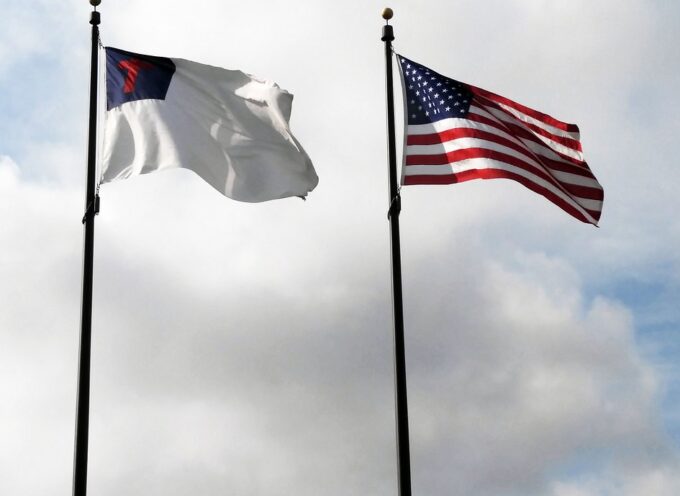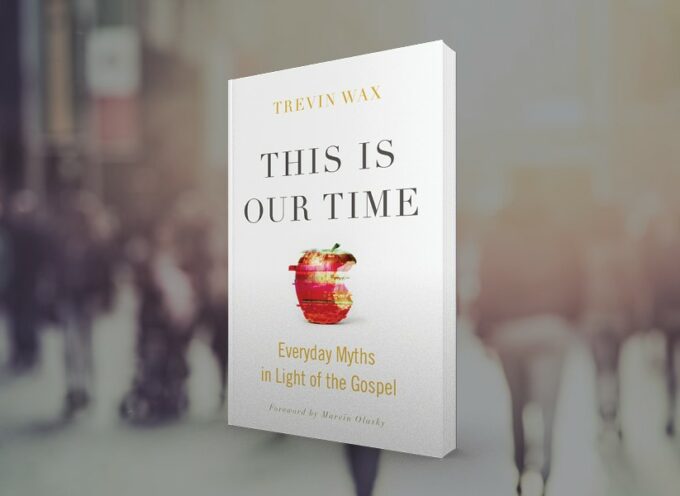Last week, I asked the readers of this website to fill out a short survey providing feedback on what they like about the site, what they don’t, and what subjects they’d like me to address. The one question asked more than any other was, “Should a pastor address political issues from the pulpit?”
So, should a pastor address political issues from the pulpit?
The answer, as I see it, is “yes and no, but mostly no.” Here’s what I mean:
Yes, faithful pastors should preach with politics and public life in mind.
All human beings are deeply and inescapably religious.
The Bible teaches that human beings are deeply and inescapably religious. Each of us embraces Someone or Something as ultimate. That Someone or Something sits on the throne of our heart, commanding our loyalties, shaping our lives, and offering some sort of salvation.
That Someone or Something might be the God of Jesus Christ or the Allah of Muhammad. Alternatively, it might be sexual pleasure, accumulation of wealth, or exercise of power. More often, we have more than one “god” fighting to occupy the throne of our heart, and it is this unique combination of “gods” that influences our lives.
True religion cascades outward from the heart into public words and actions.
The Bible also teaches that religion cannot be confined to our private lives and certain churchly religious ceremonies. Religion, by its very nature, has to do with what we recognize as ultimate in our lives. Because it is ultimate, it becomes the central organizer of our thoughts and loves.
If a person really and truly embraces the God of Jesus as the Creator, Lord, and Savior of the world, that embrace will have a cascade effect, rippling outward into that person’s beliefs, feelings, values, and actions. Similarly, if a person enthrones sex or money or power, that enthronement will cascade outward from the private recesses of his heart to his public words and actions.
Faithful gospel preaching inevitably address politics and public life.
If all human beings are religious, and if true religion cascades outward into public words and actions, then it makes sense that God’s written word would address matters at the intersection of politics and public life today. In one way or another—either directly or indirectly—it addresses matters of public debate, such as sexuality, financial ethics, compassion for the poor, the value of human life, racial reconciliation, nationalism, and a thousand other issues.
If Jesus’ Lordship is as wide as creation and encompasses the entirety of our lives, and if his written word addresses us in the private and public dimensions of our lives, then “yes,” a faithful pastor will always be “politicking” from the pulpit.
No, the Bible is not a public policy manual and pastors are not political scientists.
God’s word is powerfully relevant to public matters, yet it rarely speaks directly to public policy issues in a twenty-first century democratic republic.
The Bible tends to speak directly to morality and indirectly to political policy.
The Bible tells us to care for the poor and condemns us if we refuse to care for the poor, but it doesn’t directly address how to do so in a Constitutional democratic republic situated within a global free market economy. People on the American left tend to say the responsibility lies with the federal government. People on the American right tend to say the responsibility is best carried out by society’s mediating institutions.
The Bible tells us to live according to God’s sexual norms, but it doesn’t tell us which of those norms ought to be inscribed in our nation’s lawbooks. Most Americans (but not all) would agree that our nation should enforce laws against child abuse, necrophilia, and rape. But what about other biblical sexual norms? Should we enforce laws against same-sex marriage? Against adultery? Against sex before marriage? Against pornography?
Pastors should be careful making direct application from the Bible to public policy.
The point is this: pastors should preach with the full force of conviction about God’s judgment on people who ignore the poor and leave them in their poverty (see the book of Amos). The pastor should teach the Bible’s account of sexual flourishing, and should preach against all forms of sexual sin.
But—and this is my point—pastors should be exceedingly careful when they move from the realm of morality into the realm of government policy or political tactics. Just because the Bible contains a clear teaching about poverty or sexuality doesn’t mean that it can be transported directly into the realm of politics and public policy.
If a pastor decides to make an application to politics and public policy, he should be confident that his words and concerns mirror those of God. As Richard Mouw suggests, if we have such a confidence, we might speak directly to a public policy and offer our application. But this will be rare. The usual pattern, rather, should be to merely raise the questions and encourage the Christians who have competence in that realm (political scientists, lawyers, judges, public theologians) to find an answer.
Yes and No: A Prayer for Wisdom and Humility
When exercised judiciously and rarely, a church’s public stance on a matter of public policy can be a powerful statement. But just as easily, it could be a misguided and ham-fisted attempt to take a clear biblical directive and apply it in a facile manner to a complex public policy issues. That is why pastors should be careful not to make a direct connection between a particular biblical teaching and a particular policy issue if only an indirect connection exists. To do so is to place political elections and policy referendums on the same level as the word of God.
Instead, pastors should influence their congregants primarily through the power of the preached Word as it shapes them to live righteous lives in public. In so doing, they will also influence the hearts and minds of politicians, policy wonks, opinion writers, public theologians, and other types of public servants who are competent to make application in their respective areas of political expertise.
The pulpit of a local church is a sacred platform. It is not the same as a coffee shop conversation, an opinion column, a Facebook page, or a voter’s booth. Unlike these other platforms, the pulpit is a place where the pastor should preach—to the best of his ability—God’s Word, and should minimize his fallible human opinion.
So the answer is yes and no, and the challenge is for Christians and pastors to pray that the Lord will give us wisdom and humility to know when to do it and when to refrain.
Subscribe
Never miss a post! Have all new posts delivered straight to your inbox.







